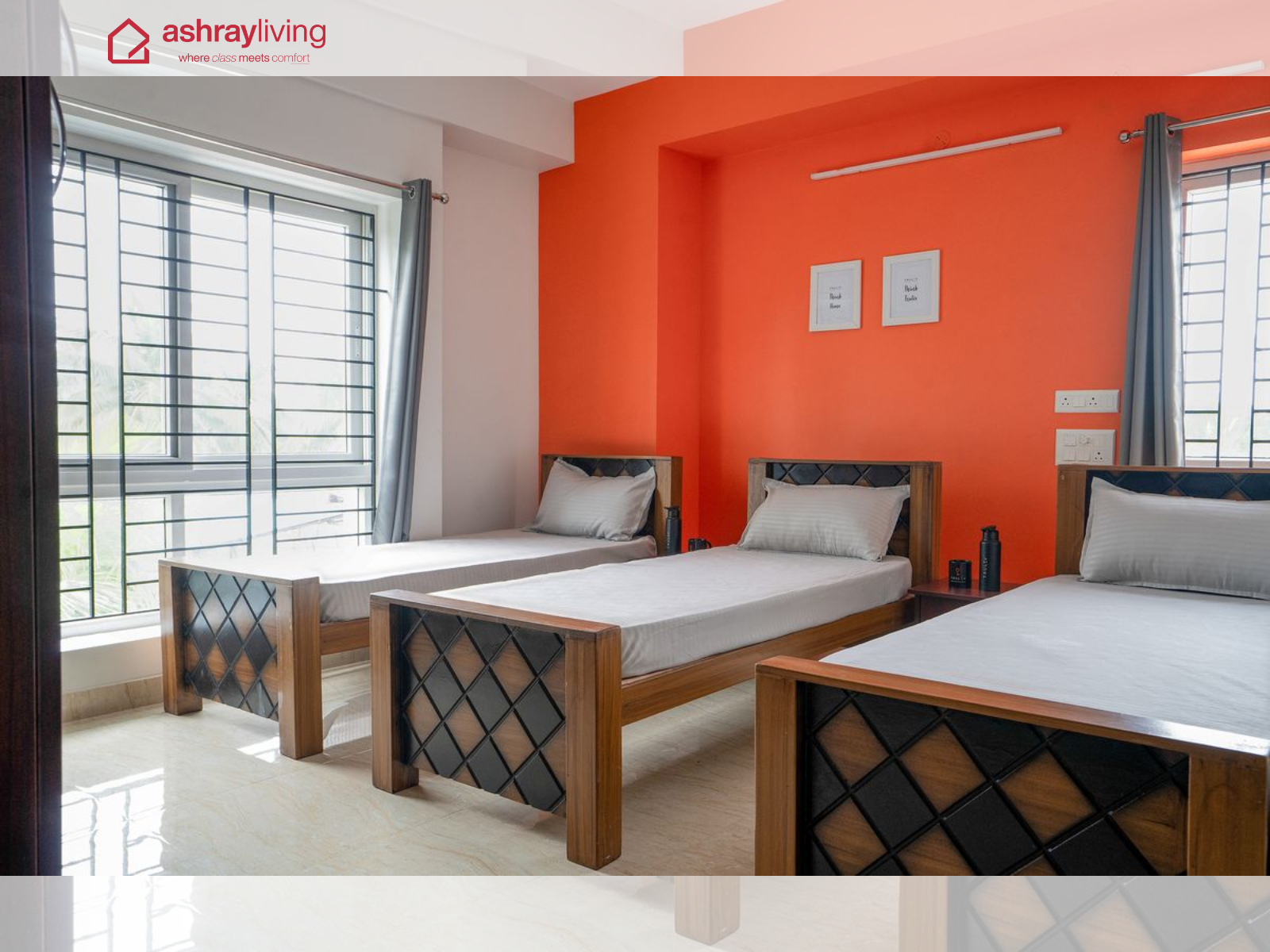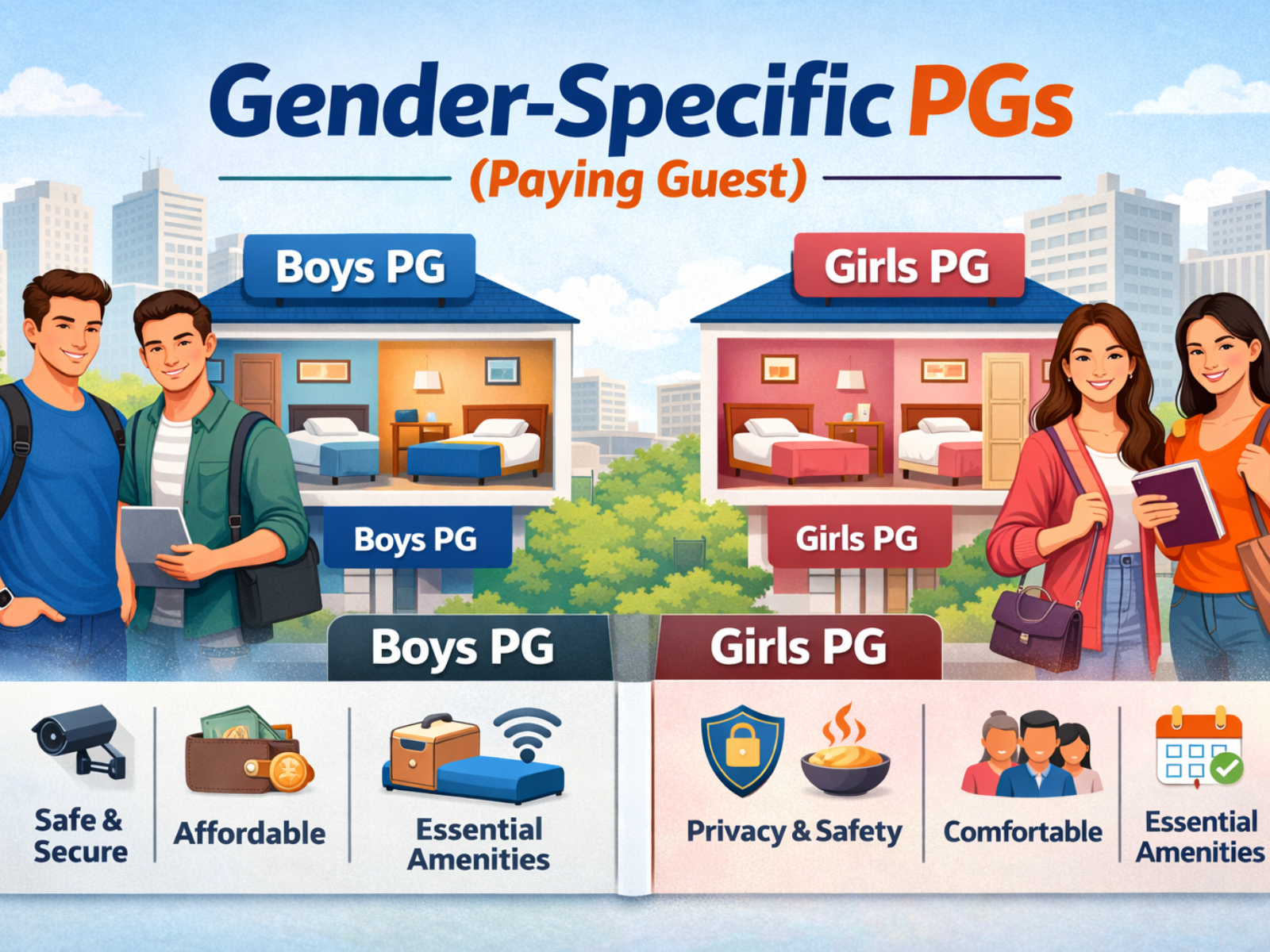
Converting your home into a paying guest (PG) accommodation can be a lucrative and fulfilling venture. However, it’s important to approach this transition with careful planning and consideration. Here’s a detailed guide to help you prepare:
1. Understand Local Regulations
Before setting up a PG, familiarize yourself with the local laws and regulations regarding rental properties. Many municipalities have specific rules about operating PG accommodations, including zoning laws, safety standards, and registration requirements. Ensure you obtain the necessary permits and licenses to avoid legal complications. Consult with a legal expert if needed to understand tax implications and compliance with rental laws.
2. Evaluate Your Space
Assess whether your home is suitable for a PG setup. Consider the number of rooms you can allocate, the common areas you can share, and the facilities you can provide. Spacious rooms, a functional kitchen, and clean bathrooms are basic necessities for any PG accommodation. If you have outdoor spaces, such as a garden or terrace, consider how you can incorporate them into your offering to add value.
3. Renovate and Furnish Appropriately
Invest in minor renovations to make the space more comfortable and appealing. Add essentials like beds, wardrobes, study tables, and chairs in each room. Ensure the interiors are well-lit and ventilated. If your budget allows, provide additional amenities such as air conditioning, Wi-Fi, and washing machines. Use durable materials for furniture and fixtures to minimize maintenance costs over time.
4. Set Clear House Rules
Draft a set of house rules that tenants must follow. These can include guidelines on cleanliness, noise levels, visitor policies, and usage of common areas. Communicating these rules upfront will help you maintain discipline and prevent conflicts. Ensure these rules are communicated in writing and displayed prominently in the common areas for easy reference.
5. Determine Your Target Audience
Identify your target demographic—students, working professionals, or both. This decision will influence your pricing, the amenities you offer, and your marketing strategy. For example, students may prioritize affordability, while working professionals might value privacy and convenience. Consider the proximity of your property to educational institutions, business hubs, or transportation links when defining your audience.
6. Price Your Accommodation Competitively
Research the prevailing market rates in your area to set competitive prices. Consider factors such as the location, facilities, and the type of audience you are targeting. Ensure your pricing structure covers maintenance costs and provides a reasonable profit margin. Offering flexible payment options, such as monthly or quarterly plans, can also attract more tenants.
7. Ensure Safety and Security
Safety should be a top priority. Install security measures such as CCTV cameras, secure locks, and fire safety equipment. Verify tenants' identities by requesting valid ID proof and maintaining a tenant registry. This step not only enhances safety but also builds trust with your tenants. Consider hiring a security guard if the scale of your PG justifies it.
8. Manage Utilities and Maintenance
Plan how you will manage utilities such as electricity, water, and internet services. Regular maintenance of the property is essential to keep it in good condition. Hire reliable service providers for cleaning, plumbing, and electrical repairs. Offer a feedback system for tenants to report issues promptly, ensuring that you can address problems efficiently.
9. Create a Rental Agreement
Draft a comprehensive rental agreement that outlines the terms and conditions of the tenancy. Include details about rent, security deposits, notice periods, and house rules. A clear agreement protects both you and your tenants from potential disputes. Consult a legal professional to ensure the agreement is watertight and adheres to local regulations.
10. Market Your PG Effectively
Promote your PG accommodation through online platforms, local classifieds, and social media. Highlight your unique selling points, such as proximity to colleges, offices, or public transport. High-quality photos and honest descriptions will attract more inquiries. Word-of-mouth recommendations can also be powerful; encourage satisfied tenants to refer your property to others.
11. Be Prepared for Challenges
Managing a PG accommodation comes with its own set of challenges, such as handling complaints, resolving conflicts, and maintaining the property. Develop strong communication and problem-solving skills to address issues effectively. Stay organized by keeping records of payments, tenant details, and maintenance schedules.
12. Focus on Building a Positive Experience
Creating a welcoming and supportive environment can set your PG apart from others. Regularly check in with tenants to gather feedback and address their concerns. Organize occasional events, such as movie nights or community dinners, to foster a sense of community among tenants. A happy tenant is more likely to stay longer and recommend your PG to others.
13. Prepare for Emergencies
Have a plan in place for emergencies, such as medical issues, natural disasters, or unexpected property damage. Keep a list of emergency contacts, including local hospitals, police, and electricians, readily available for tenants. Providing basic first aid supplies and ensuring your property is insured can further protect you and your tenants.
Conclusion
Turning your home into a PG accommodation can be a rewarding venture if planned and managed correctly. By considering these factors, you can create a comfortable and well-organized living space that meets the needs of your tenants while providing you with a steady income. With careful preparation and ongoing management, your PG can become a sought-after choice for renters in your area.








